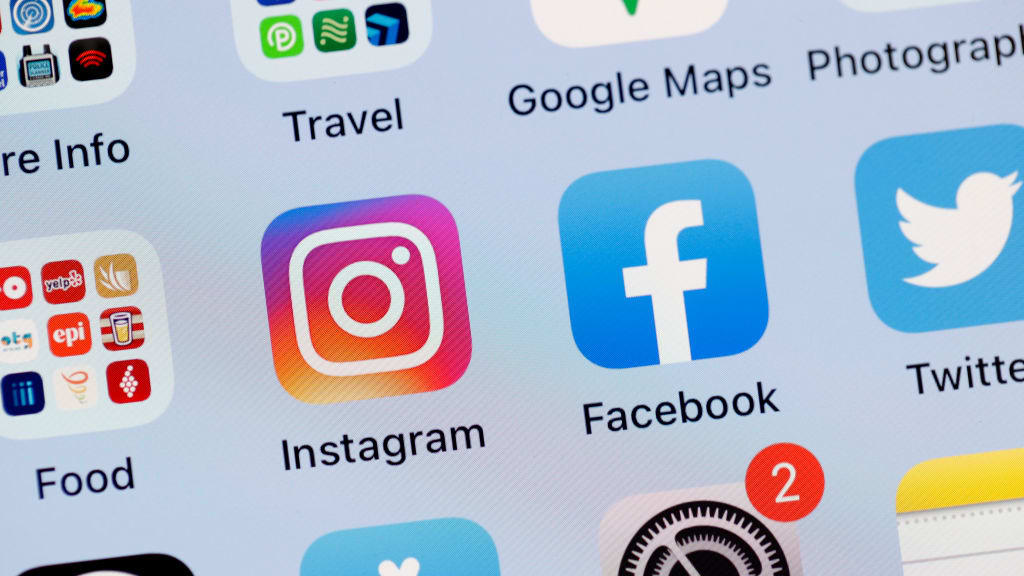The difference between reining in Big Tech and Big Tobacco


A free daily email with the biggest news stories of the day – and the best features from TheWeek.com
You are now subscribed
Your newsletter sign-up was successful
There's been no shortage of comparisons between the tech industry and Big Tobacco in recent days, particularly following revelations from Facebook whistleblower Frances Haugen and her damning congressional testimony last week.
However, regulating Big Tech may prove trickier than reining in the tobacco industry, writes Axios, although there are some "clear parallels" between the two.
One "key" difference is that "Big Tobacco was a relatively stationary target" — in other words, large companies produced essentially the same product over and over. In the case of Big Tech, however, products "differ widely from one another, as do the perceived harms." The companies themselves and the whole industry are "rapidly moving targets," notes Axios. Moreover, the evidence against tobacco companies was (and still is) obvious and overwhelming, whereas the case against social media companies is "murkier and more debatable."
The Week
Escape your echo chamber. Get the facts behind the news, plus analysis from multiple perspectives.

Sign up for The Week's Free Newsletters
From our morning news briefing to a weekly Good News Newsletter, get the best of The Week delivered directly to your inbox.
From our morning news briefing to a weekly Good News Newsletter, get the best of The Week delivered directly to your inbox.
A commonality is that the fix itself will likely take time. It took over a decade to significantly regulate tobacco companies, "suggesting that those looking for quick changes in tech will be disappointed," Axios writes. What's more, because the tech industry is so rapidly evolving, lawmakers will have to focus on the right platforms (all of the attention to Facebook and Instagram ignores other popular services, like TikTok) and craft laws that "won't quickly become obsolete." They'll also need to sort through partisan differences, as Republicans and Democrats often focus on differing issues in tech, offering solutions that are "all over the map."
In the meantime, New Street Research's Blair Levin told Axios, "Facebook may now face a similar challenge from increased litigation as tobacco, or more recently, OxyContin." Read more at Axios.
A free daily email with the biggest news stories of the day – and the best features from TheWeek.com
Brigid Kennedy worked at The Week from 2021 to 2023 as a staff writer, junior editor and then story editor, with an interest in U.S. politics, the economy and the music industry.
-
 How the FCC’s ‘equal time’ rule works
How the FCC’s ‘equal time’ rule worksIn the Spotlight The law is at the heart of the Colbert-CBS conflict
-
 What is the endgame in the DHS shutdown?
What is the endgame in the DHS shutdown?Today’s Big Question Democrats want to rein in ICE’s immigration crackdown
-
 ‘Poor time management isn’t just an inconvenience’
‘Poor time management isn’t just an inconvenience’Instant Opinion Opinion, comment and editorials of the day
-
 Is social media over?
Is social media over?Today’s Big Question We may look back on 2025 as the moment social media jumped the shark
-
 Australia’s teen social media ban takes effect
Australia’s teen social media ban takes effectSpeed Read Kids under age 16 are now barred from platforms including YouTube, TikTok, Instagram, Facebook, Snapchat and Reddit
-
 Google avoids the worst in antitrust ruling
Google avoids the worst in antitrust rulingSpeed Read A federal judge rejected the government's request to break up Google
-
 Supreme Court allows social media age check law
Supreme Court allows social media age check lawSpeed Read The court refused to intervene in a decision that affirmed a Mississippi law requiring social media users to verify their ages
-
 Nvidia hits $4 trillion milestone
Nvidia hits $4 trillion milestoneSpeed Read The success of the chipmaker has been buoyed by demand for artificial intelligence
-
 X CEO Yaccarino quits after two years
X CEO Yaccarino quits after two yearsSpeed Read Elon Musk hired Linda Yaccarino to run X in 2023
-
 Musk chatbot Grok praises Hitler on X
Musk chatbot Grok praises Hitler on XSpeed Read Grok made antisemitic comments and referred to itself as 'MechaHitler'
-
 Disney, Universal sue AI firm over 'plagiarism'
Disney, Universal sue AI firm over 'plagiarism'Speed Read The studios say that Midjourney copied characters from their most famous franchises
